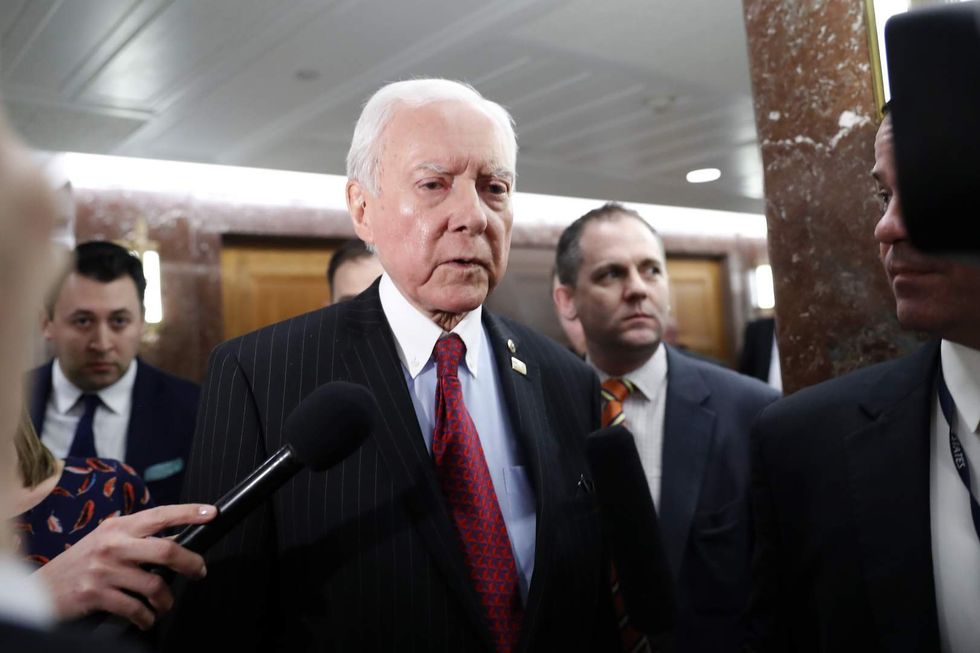Republicans in the House of Representatives are floating a border adjustment tax as part of general tax reform bill, which they believe ultimately could be used to pay for a border wall. But Senate leadership has indicated there are questions about the measure — which would apply an income tax to goods produced and sold in the United States as well as goods produced in foreign countries and sold in the United States — that might prevent them from passing the legislation outright.
In a speech to the U.S. Chamber of Commerce, Senate Finance Committee Chairman Orrin Hatch (R-Utah) said that the border adjustment tax might place an undue burden on U.S. consumers and businesses, and indicated there are questions as to whether or not it would comply with international trade rules.
While he noted that he is not opposing the effort, Hatch said he's uncomfortable offering his full support until the specifics are outlined.
"We don't have definitive answers to any of those questions at this particular point. And without them, I don't think I can give definitive positions," he said. "A major concern on tax reform is producing a bill that can get through the Senate."
According to Reuters, the adjustment tax, which would be used in an attempt to boost U.S. manufacturing and pay for corporate tax cuts, is an import tax rather than the export-only tax the U.S. currently employs. The border adjustment tax was was proposed by Speaker of the House Paul Ryan (R-Wis.), and is a key part of the House tax reform legislation slated to be introduced in March or April 2017. The idea has already faced opposition from some sectors of the American business landscape who fear it could raise prices for American consumers.
President Donald Trump spent the weekend signing executive orders and announced his Supreme Court pick, Neil Gorsuch, Monday, indicating to many observers an intent to keep his campaign promises. The promise of making Mexico pay for a border wall, however, is proving a bit harder to live up to. The President of Mexico has continued to insist that his country will not pay for the wall, and Trump was forced to backtrack on his rhetoric and announce that Mexico will reimburse for the cost of the wall.
Trump has not offered clear support for the border adjustment tax, and in fact noted that that proposal was "too complicated." However, the White House has agreed that it could be an option for paying for a physical structure at the border, and Trump himself has used Twitter to threaten U.S. businesses about a "border tax" to dissuade them from sending some of their business operations out of the country.
Hatch noted before his Chamber speech that the Senate would produce its own proposal on tax reform rather than simply passing the House version. Ryan offered in a recent interview with Politico that the tax is an "elegant solution" to the problem of getting Mexico to pay for a border wall.






